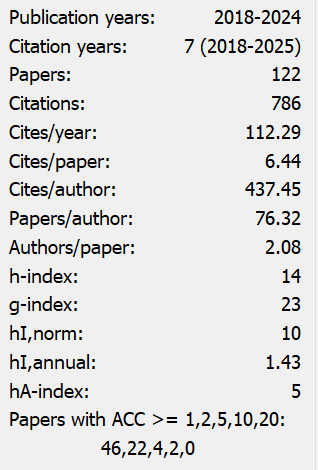Harmonizing the Digital Economy and Green Development: Challenges, Strategies and Pathways to Achieve the Double-Carbon Goal
Abstract
This paper delves into the multiple dilemmas faced by the digital economy in the process of realizing green development. First, the rapid development of the digital economy has led to the aggravation of the carbon emission problem, especially in areas such as artificial intelligence, where the demand for a large amount of arithmetic power has brought about huge energy consumption, and the current power production that mainly relies on fossil fuels makes it difficult to control carbon emissions. Second, the carbon data management system has not yet been perfected, with a single access to data and insufficient regulatory mechanisms, leading to difficulties in accurately assessing carbon emissions. Thirdly, the imperfection of the carbon trading system hinders energy conservation, emission reduction and clean energy development of enterprises, and there is an urgent need to establish a more sound carbon emissions trading market. In addition, the lack of independent innovation capability, insufficient complex talents and the greening level of the industry have yet to be improved also pose challenges to the sustainable development of the digital economy. In order to address these issues, the paper puts forward specific paths and recommendations in terms of technological innovation, institutional framework and multifaceted collaboration, with a view to realizing the organic integration of the digital economy and the goal of "double carbon".
References
Feng, Z., Song, D., & Xie, W. (2023). Digital economy helps realize the “double carbon” goal: Basic approaches, internal mechanisms, and action strategies. Journal of Beijing Normal University (Social Science Edition), 01, 52-61.
Li, N., & Song, Z. (2023). Digital low-carbon and low-carbon digital: Reflection and reconstruction of digital economy development under the goal of “double carbon.” Zhongzhou Journal, 11, 33-40.
Li, Y. (2019). Research on pollution reduction and emission reduction effects of industrial structure optimization. Zhongnan University of Economics and Law.
Sun, X., Miao, L., & Wang, Y. (2023). Digital transformation of traditional industries enabling the achievement of the "double carbon" goal: Transmission mechanism, key issues, and path optimization. Research on Technology Economy and Management, 12, 97-101.
Wang, H., & Cheng, Y. (2024). Impact of the digital economy on total factor energy efficiency: Evidence from 268 Chinese cities. Environmental Science and Pollution Research International, 31(2), 2960-2975. https://doi.org/10.1007/s11356-023-31356-0
Xie, H., Yang, Q., & Wu, X. (2023). Research on the impact of digital trade on China's regional carbon emission reduction. Price Theory and Practice, 11, 180-184. https://doi.org/10.19851/j.cnki.CN11-1010/F.2023.11.448
Yang, G., Wang, H., Fan, H., et al. (2023). Carbon reduction effect of digital economy: Theoretical analysis and empirical evidence. China Industrial Economy, 05, 80-98. https://doi.org/10.19581/j.cnki.ciejournal.2023.05.005
Yang, J. (2020). Research on the impact of environmental regulation and industrial structure upgrading on carbon emission. Chengdu University of Technology. https://doi.org/10.26986/d.cnki.gcdlc.2020.000870
Zhang, C. (2023). How does the digital economy affect the intensity of carbon emissions: Based on the dual perspectives of industrial structure upgrading and rationalization. Science of Science and Management of S&T, 10, 1-28. https://doi.org/10.20201/j.cnki.ssstm.2024.10.008

This work is licensed under a Creative Commons Attribution 4.0 International License.
Copyright for this article is retained by the author(s), with first publication rights granted to the journal.
This is an open-access article distributed under the terms and conditions of the Creative Commons Attribution license (http://creativecommons.org/licenses/by/4.0/).


























